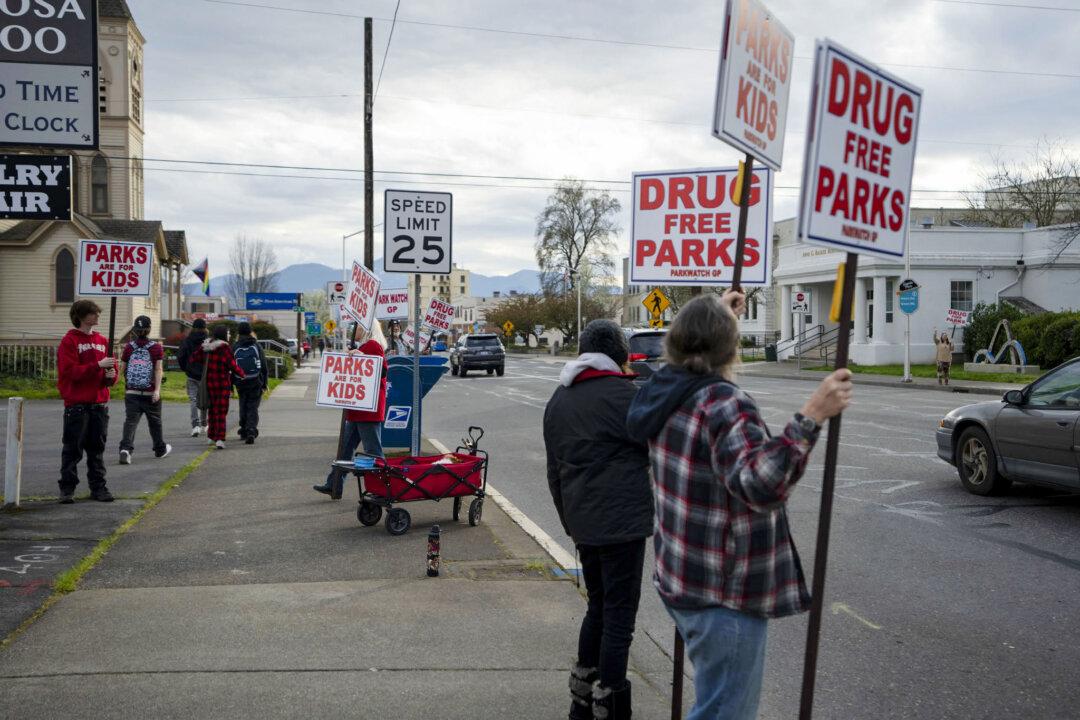Oregon’s experiment with drug decriminalization came to an end on Sept. 1, with a law now in effect that re-criminalizes the possession of small amounts of certain drugs in the state.
The law, HB 4002, passed in March, makes the possession of drugs such as fentanyl, heroin, and methamphetamine for personal use in Oregon a misdemeanor, punishable by up to six months in jail.





